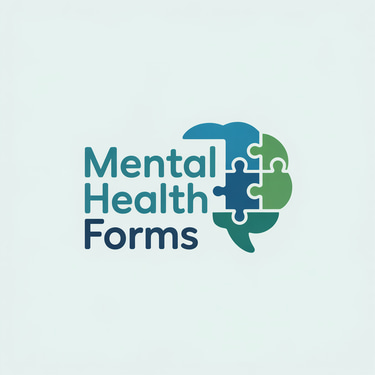Are You Charging for Records Illegally? Why You Can’t Charge for Medical Records—But Can (and Should) Charge for Letters and Forms
Are you a mental health professional unsure about what you can legally charge for? This post explains why you can’t charge patients for their own medical records under the 21st Century Cures Act—but can (and should) charge for letters, forms, and other non-clinical documentation. Learn how to stay compliant while capturing the revenue your practice deserves.
11/21/20243 min read


Are You Charging for Records Illegally? Why You Can’t Charge for Medical Records—But Can (and Should) Charge for Letters and Forms
If you run a mental health practice, paperwork is a constant part of your day. But are you charging for it the right way?
Many clinicians don’t realize there’s a crucial legal difference between patient medical records—which you generally cannot charge for under the 21st Century Cures Act—and non-clinical documentation, which you absolutely can (and should) bill for.
Failing to understand this difference can land you in regulatory trouble and also cost your practice money if you're giving your professional time away for free.
You Cannot Charge Patients for Access to Their Medical Records
Under the 21st Century Cures Act, patients have the legal right to timely, barrier-free access to their own electronic health information. This law was designed to prevent information blocking and surprise fees.
What this means in practice:
You cannot deny patients access to their own notes or records.
You cannot impose "administrative" or "retrieval" fees for sending records electronically.
You cannot hold records hostage pending payment.
Example:
If a patient emails, "Can I get a copy of my last three progress notes?" you must provide them promptly, often via your portal or secure email. You cannot reply, "Sure, but it'll be $20 for retrieval."
Consequences of Violating the Cures Act:
Regulatory complaints to the Office of the National Coordinator (ONC) or state health departments.
Financial penalties.
Licensing board investigations for non-compliance.
Loss of trust and damage to your reputation.
When the client is requesting their own records, you typically cannot charge for that access.
But You Can Charge for Non-Clinical Documentation Requests
Here’s the good news: Many clinicians are leaving money on the table by giving away services they can absolutely charge for.
Requests for documentation that goes beyond simply sharing existing records are considered non-clinical services. Preparing these takes time, clinical judgment, and administrative effort—and it is standard, accepted practice to charge for them.
Examples of documentation you can charge for include:
Letters of support (emotional support animals, housing, work accommodations)
FMLA paperwork
School forms
Disability application forms
Detailed legal or forensic summaries
Treatment summaries for court or legal proceedings
These documents are not just copies of the chart. They require new work, thoughtful clinical assessment, and your professional expertise.
The Legal and Ethical Basis
Professional licensing boards (psychology, counseling, social work, medicine) generally permit fees for non-clinical administrative work as long as the fees are clearly disclosed and patients agree in advance.
HIPAA regulations specifically limit what you can charge for copies of the medical record, but they do not restrict reasonable, disclosed fees for non-clinical documentation prepared separately.
All U.S. states allow providers to charge for non-clinical documentation as long as the process is transparent and the fees are reasonable.
This is not just legally allowed—it is the industry standard. Medical and mental health practices routinely have posted, written fee schedules for this work.
Are You Leaving Money on the Table?
Every week, clinicians spend hours completing letters, forms, and summaries for free. That’s time that could generate steady revenue for your practice.
Consider the math:
Two to three letters per week at $30 each can add up to around $400 per month.
A few detailed legal reports at $150–$250 each can add thousands per year.
If you’re not charging, you’re working for free.
Ways You Can Get in Trouble
While you can charge for non-clinical documentation, it’s important to avoid these common mistakes:
Charging for access to the medical record in violation of the Cures Act.
Surprising clients with hidden fees that weren’t disclosed up front.
Refusing to release records unless payment is made.
Setting fees that are unreasonable or exploitative.
To avoid these pitfalls, you need a clear, written policy that distinguishes between free access to records and paid non-clinical documentation.
Take Action: Get The Form to Charge for Documentation
We have a professionally drafted, ready-to-use policy template that helps you:
✅ Set reasonable, ethical fees for non-treatment forms and letters
✅ Protect your practice with transparent, written consent from clients
Forms
Streamlined templates for mental health documentation needs.
© 2023. All rights reserved.
